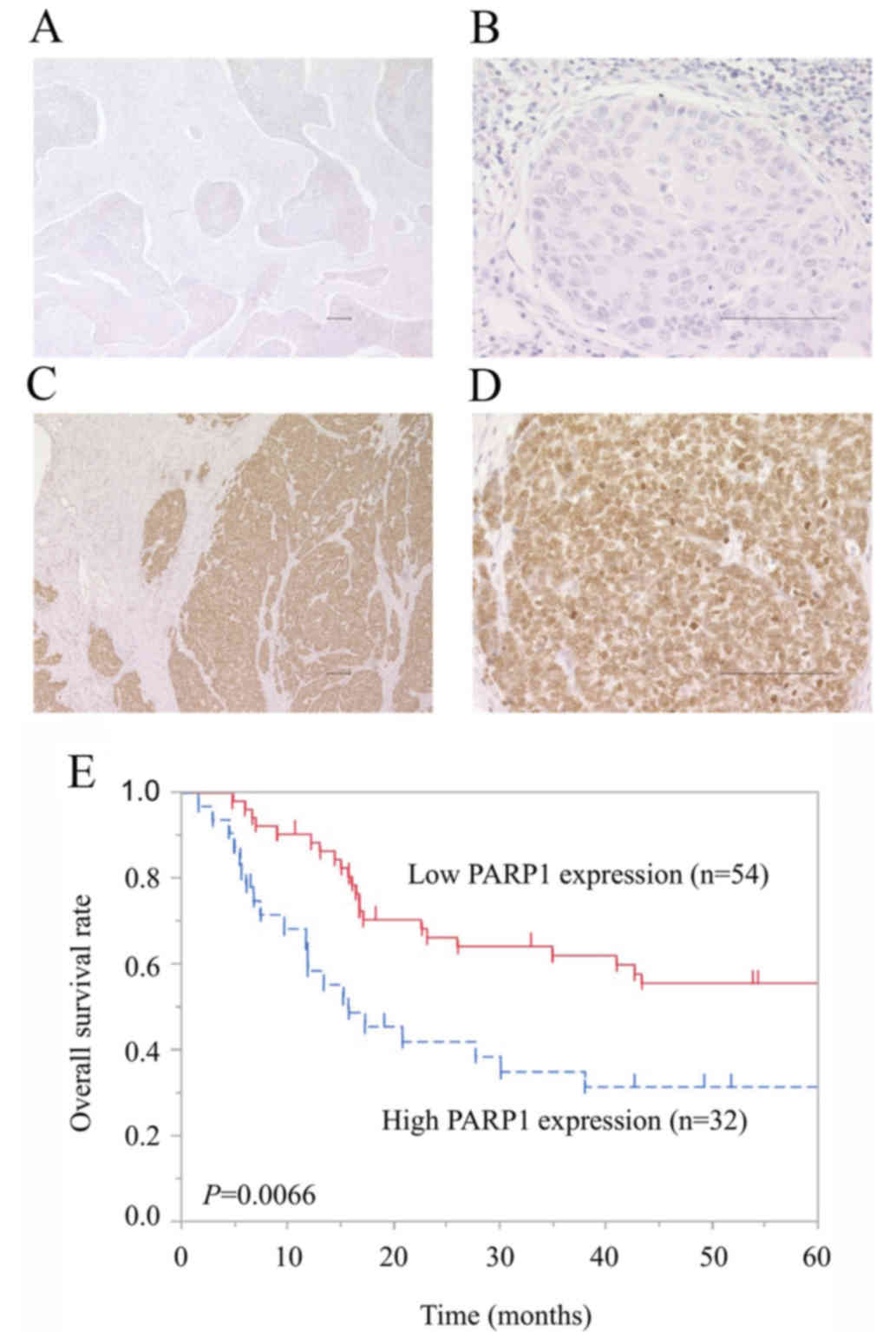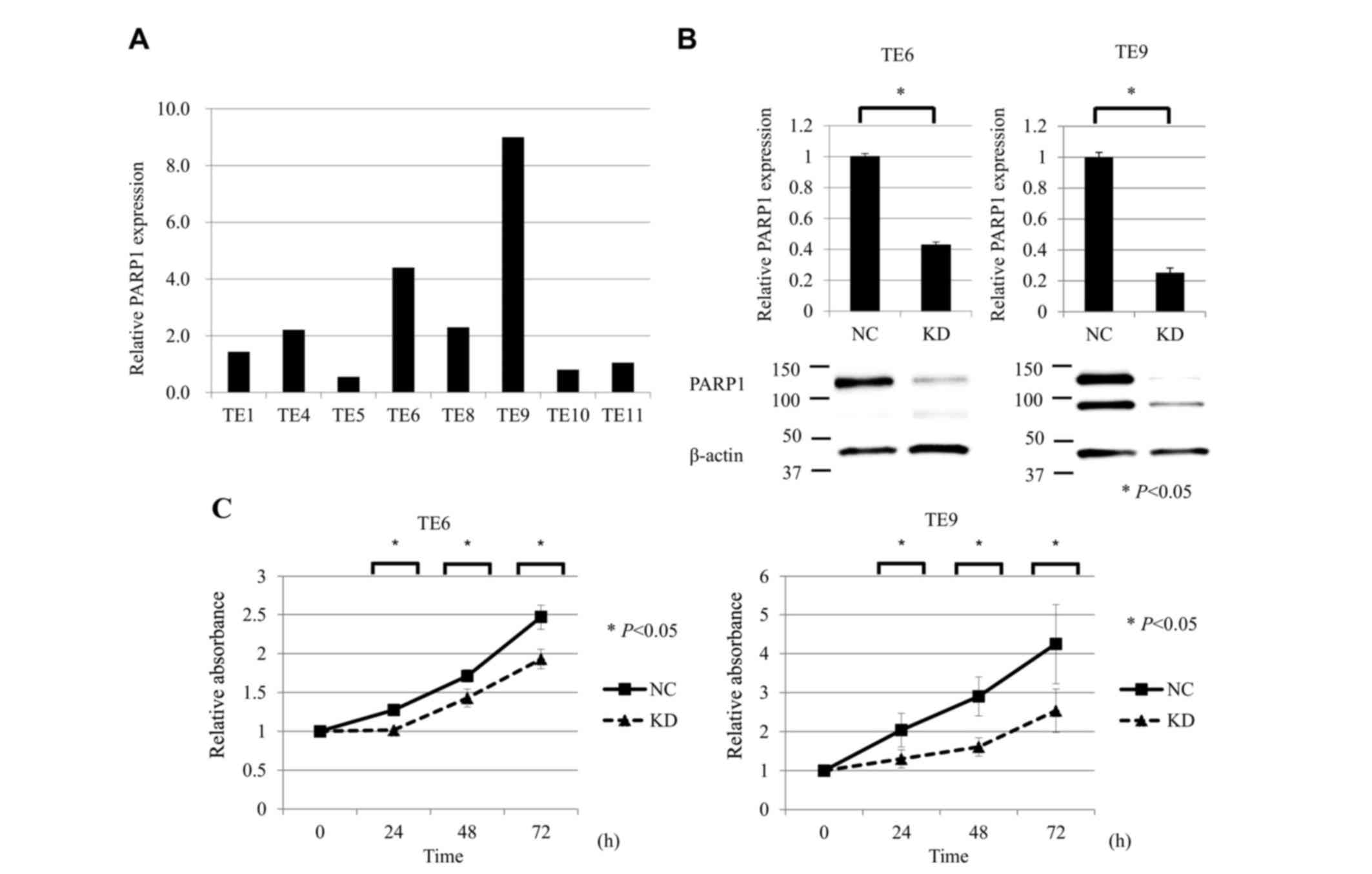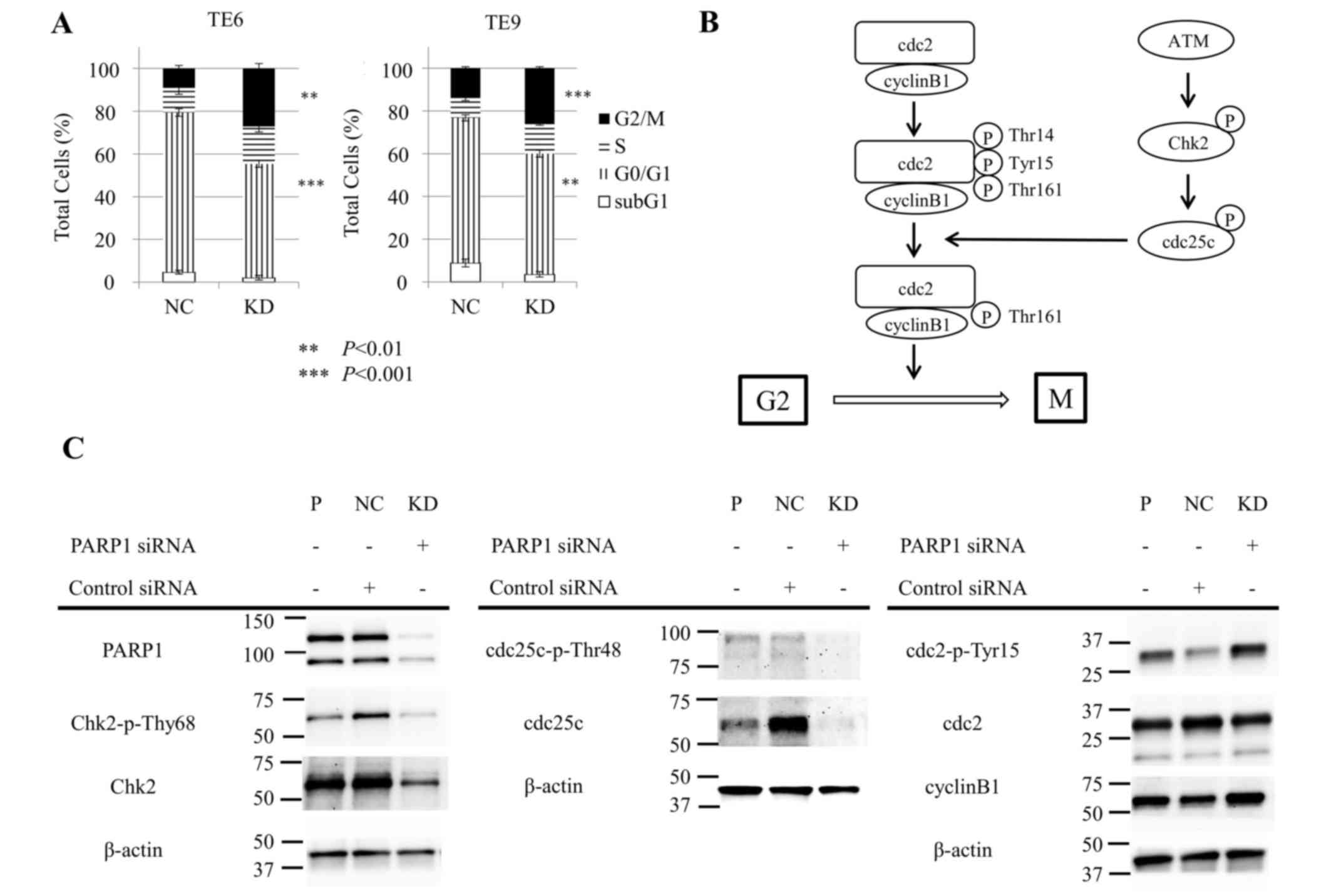Spandidos Publications style
Yamamoto M, Yamasaki M, Tsukao Y, Tanaka K, Miyazaki Y, Makino T, Takahashi T, Kurokawa Y, Nakajima K, Takiguchi S, Takiguchi S, et al: Poly (ADP-ribose) polymerase-1 inhibition decreases proliferation through G2/M arrest in esophageal squamous cell carcinoma. Oncol Lett 14: 1581-1587, 2017.
APA
Yamamoto, M., Yamasaki, M., Tsukao, Y., Tanaka, K., Miyazaki, Y., Makino, T. ... Doki, Y. (2017). Poly (ADP-ribose) polymerase-1 inhibition decreases proliferation through G2/M arrest in esophageal squamous cell carcinoma. Oncology Letters, 14, 1581-1587. https://doi.org/10.3892/ol.2017.6334
MLA
Yamamoto, M., Yamasaki, M., Tsukao, Y., Tanaka, K., Miyazaki, Y., Makino, T., Takahashi, T., Kurokawa, Y., Nakajima, K., Takiguchi, S., Mori, M., Doki, Y."Poly (ADP-ribose) polymerase-1 inhibition decreases proliferation through G2/M arrest in esophageal squamous cell carcinoma". Oncology Letters 14.2 (2017): 1581-1587.
Chicago
Yamamoto, M., Yamasaki, M., Tsukao, Y., Tanaka, K., Miyazaki, Y., Makino, T., Takahashi, T., Kurokawa, Y., Nakajima, K., Takiguchi, S., Mori, M., Doki, Y."Poly (ADP-ribose) polymerase-1 inhibition decreases proliferation through G2/M arrest in esophageal squamous cell carcinoma". Oncology Letters 14, no. 2 (2017): 1581-1587. https://doi.org/10.3892/ol.2017.6334

















